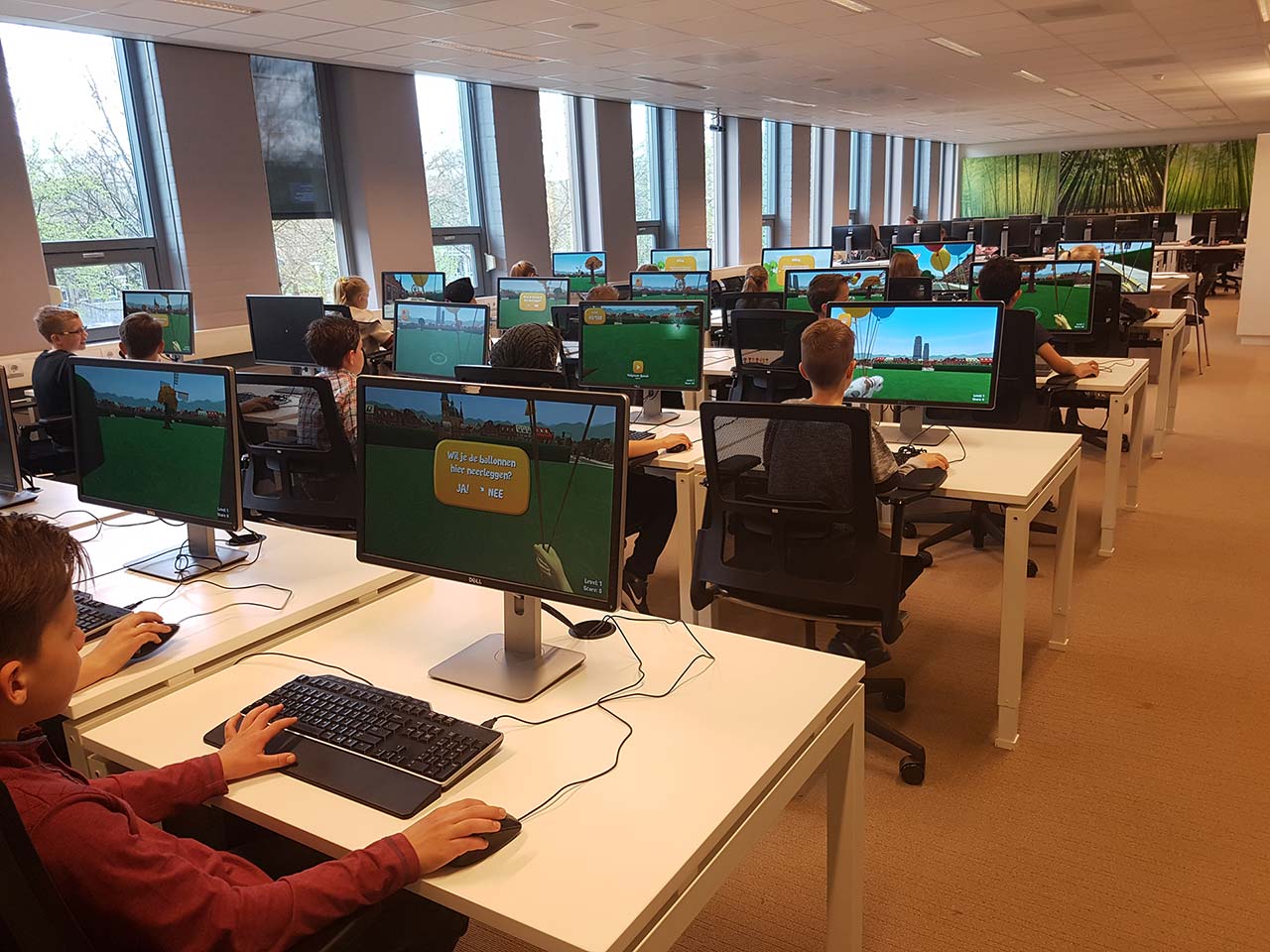KNOWLEDGE
Knowledge
Green Dino highly values scientific research and development. The collaborations with universities and research institutions are aimed at validating and improving existing simulation products and the development of new products.
Thanks to the knowledge exchange with independent parties, the effectiveness and sustainability of simulation products are improved. Through validation of the simulation products, the reliability is determined objectively.
FOCOM
The food choice simulator is a new method to measure shopping behaviour in an interactive virtual shop. The food choice simulator measures attention, stimulations (arousal), emotional reactions, and which products were viewed, by using facial recognition, gaze tracking, brain activity, and physiological reactions. With this combination of various measures you can automatically measure consumers' attitude towards products. Measure of time-space behaviour can be done in a virtual shop. A virtual shop environment can be matched exactly to a real shop. Testing shelving plans, nudging, price effects, packages, can be tested cheaply.
BriteN
The research project BriteN started in 2016. Green Dino developed a simulation game for testing and training the development of spatial orientation in children together with the Donders institute. The goal is to follow the functionality of nutritional ingredients with regards to cognitive and metabolic development.
Donro
A system with which we can measure the immediate impact of nudges on individual consumers and also determine changes in the food choice behaviour, can save retailers and caterers a lot of time and money. It is important to test this in the most realistic environment possible for valid predictions.
Advice
The mental workload of drivers is quantified in various traffic situations and with various driver types, such as careful elderly people, risk-taking young people, and so on. This information is the input for future support systems.
DriveLab
This tool helps researchers understand the driving behaviour and the influence of driving-supporting systems (ADAS) on behaviour and performance. The evaluation of human machine interaction designs is possible as well. The setup consists of a Green Dino simulators, equipped with high end components such as an eye tracker.
DriveLab is developed with Noldus, Smart Eye, Delft University, and HAN University of applied sciences.






